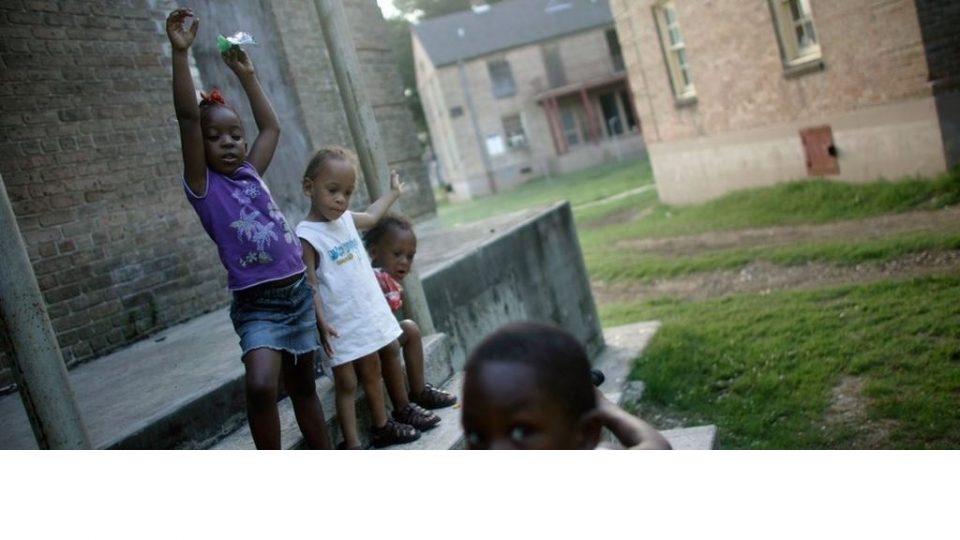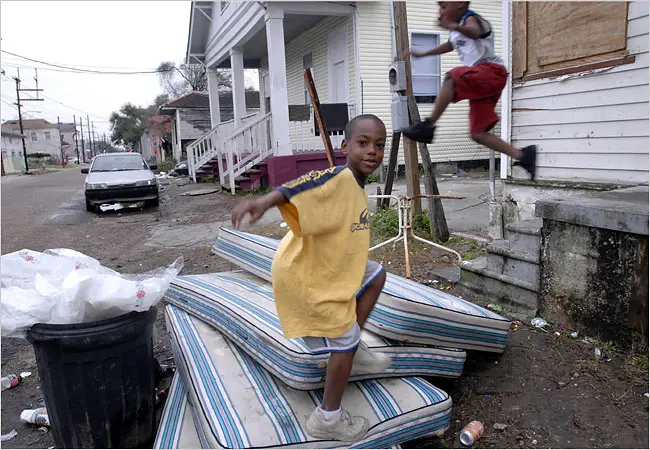In the vibrant and culturally diverse city of New Orleans, a pressing issue is affecting many residents. But the African American community is especially impacted. Adverse Childhood Experiences(ACEs) have become a focal point in the city’s pursuit of a healthier and more resilient future.
Adverse Childhood Experiences(ACEs) encompass a range of traumatic events or circumstances that occur during an individual’s formative years, typically before the age of 18. These experiences disrupt a child’s sense of safety, stability, and overall well-being. The ACEs concept gained prominence through the groundbreaking ACEs Study. The Centers for Disease Control and Prevention (CDC) and Kaiser Permanente conducted the research in the late 1990s. They identified ten common ACE factors that can profoundly affect a person’s life throughout adulthood.
This table illustrates the problems many children endure in New Orleans
| ACE Factor | Description |
| Physical Abuse | The experience of physical harm or injury inflicted by a caregiver or trusted adult can leave lasting physical and emotional scars. |
| Emotional Abuse | Verbal aggression, humiliation, or emotional neglect can negatively impact a child’s mental health and self-esteem. |
| Sexual Abuse | Inappropriate sexual contact or exposure during childhood can lead to long-lasting trauma and psychological distress. |
| Household Dysfunction | Living in an environment marked by domestic violence, substance abuse, mental illness, or incarceration can create an unstable and unsafe upbringing. |
| Neglect | Lack of basic necessities, such as food, shelter, and emotional support, can hinder a child’s healthy development. |
| Parental Separation or Divorce | The breakdown of a family unit can result in emotional distress and a sense of abandonment. |
| Substance Abuse | Exposure to a caregiver’s substance abuse can lead to neglect, trauma, and a higher likelihood of substance use issues later in life. |
| Mental Illness | Growing up with a caregiver who struggles with mental health issues can create an unstable home environment and increase the risk of mental health challenges for the child. |
| Incarceration | A parent’s imprisonment can disrupt family dynamics, leading to a range of negative consequences for the child. |
| Community Violence | Witnessing or experiencing violence in the neighborhood or community can contribute to feelings of fear and insecurity. |

In New Orleans, a historical legacy of racial discrimination, economic disparities, and systemic inequalities contributes to the higher likelihood of African American children experiencing ACEs. Poverty rates in the Black community are disproportionately high. Poverty increases the risk of neglect, household dysfunction, and exposure to community violence. Additionally, limited access to quality healthcare and education exacerbates the impact of ACEs on children’s long-term outcomes.
Building Resilience for African Americans
ACEs are not mere childhood memories. They hold lasting implications for health, leading to an increased probability of disease, disability, and adverse life outcomes. Stress induced by ACEs can alter a child’s brain and body. This elevates the risk of illnesses and making life more challenging. These effects accumulate over time, with each additional ACE compounding the potential for harm.
The effects of ACEs extend beyond individual well-being; they have significant societal health, economic, and well-being costs. Many experts consider ACEs a public health crisis due to their pervasive influence. Marginalized communities often bear a disproportionate burden of ACEs, intertwined with issues like community violence, racism, incarceration, and discrimination.
ACEs disrupt the body’s equilibrium, causing toxic stress that can harm the immune system, emotional regulation, concentration, learning, and anxiety management. The cumulative effects of ACEs can manifest in various psychological and medical problems. The effects include chronic depression, anxiety and chronic health issues.
Related: The Inheritance of Poverty
The ACE survey – comprised of 10 questions – quantifies an individual’s exposure to ACEs during childhood. Each “yes” response to a question contributes to an individual’s ACE score, which ranges from 0 to 10. A higher score indicates a greater likelihood of experiencing negative outcomes later in life. For instance, a score of 4 or more doubles an adult’s risk of developing heart disease or cancer. A score of 5 or more increases the chance of alcoholism by eightfold. And a
score of 6 or more amplifies the risk of further negative outcomes.
The ACE Survey
Please answer the following questions by indicating if they happened during your childhood (up to age 18). For each “yes” response, add one point to your ACE score.
- Did a parent or other adult in the household often swear at you, insult you, or humiliate you or act in a way that made you afraid you would be physically hurt?
- Did a parent or other adult in the household often push, grab, slap, or throw something at you? Or any adult ever hit you so hard that you had marks or were injured?
- Did an adult or person at least five years older than you ever touch or fondle you or have you touch their body in a sexual way or attempt to have intercourse with you?
- Did you often feel that no one in your family loved you or thought you were important or special, or your family didn’t look out for each other, feel close to each other, or support each other?
- Did you often feel that you didn’t have enough to eat, had to wear dirty clothes, and had no one to protect you, or your parents were too drunk or high to take care of you or take you to the doctor if you needed it?
- Were your parents ever separated or divorced?
- Was your mother or stepmother often pushed, grabbed, slapped, or had something thrown at her? Or was she kicked, bitten, hit with a fist, or hit with something hard, or ever repeatedly hit over at least a few minutes? or threatened with a gun or knife?
- Did you live with anyone who was a problem drinker or alcoholic, or who used street drugs?
- Was a household member depressed or mentally ill or did a household member attempt suicide?
- Did a household member go to prison?
Building Resilience for African Americans
While ACEs can have a profound impact on a person’s life, it’s essential to recognize that resilience is a powerful force that can counteract the negative effects of adversity. Resilience is the ability to bounce back from difficult experiences, adapt to challenges, and grow stronger in the face of adversity. In the context of ACEs, resilience can play a pivotal role in mitigating their long-term consequences.
Building resilience involves several key factors:
- Strong Support Networks: Having supportive relationships with family, friends, mentors, or community organizations can provide a buffer against the effects of ACEs.
- Access to Mental Health Services: Seeking professional help and therapy can aid individuals in processing and coping with traumatic experiences.
- Coping Skills: Teaching individuals healthy coping mechanisms, such as mindfulness, problem-solving, and emotional regulation, can enhance their resilience.
- Positive Self-Identity: Fostering a sense of self-worth and self-efficacy can help individuals develop a more positive outlook on life.
- Education and Employment Opportunities: Access to quality education and employment opportunities can empower individuals to overcome adversity and improve their socio-economic status.
Resilience is the key
Understanding the concept of ACEs and their impact is a crucial step toward creating a brighter future for the city. We must acknowledge the challenges and work together to address them. By promoting resilience, New Orleans can build a more resilient and healthier community. A resilient New Orleans celebrates its rich culture and ensures the well-being of all its residents. Most importantly, breaking the cycle of ACEs is not just a goal but a collective commitment. A commitment to nurturing the city’s most precious resource—its children, who, with resilience, can overcome adversity and thrive.

